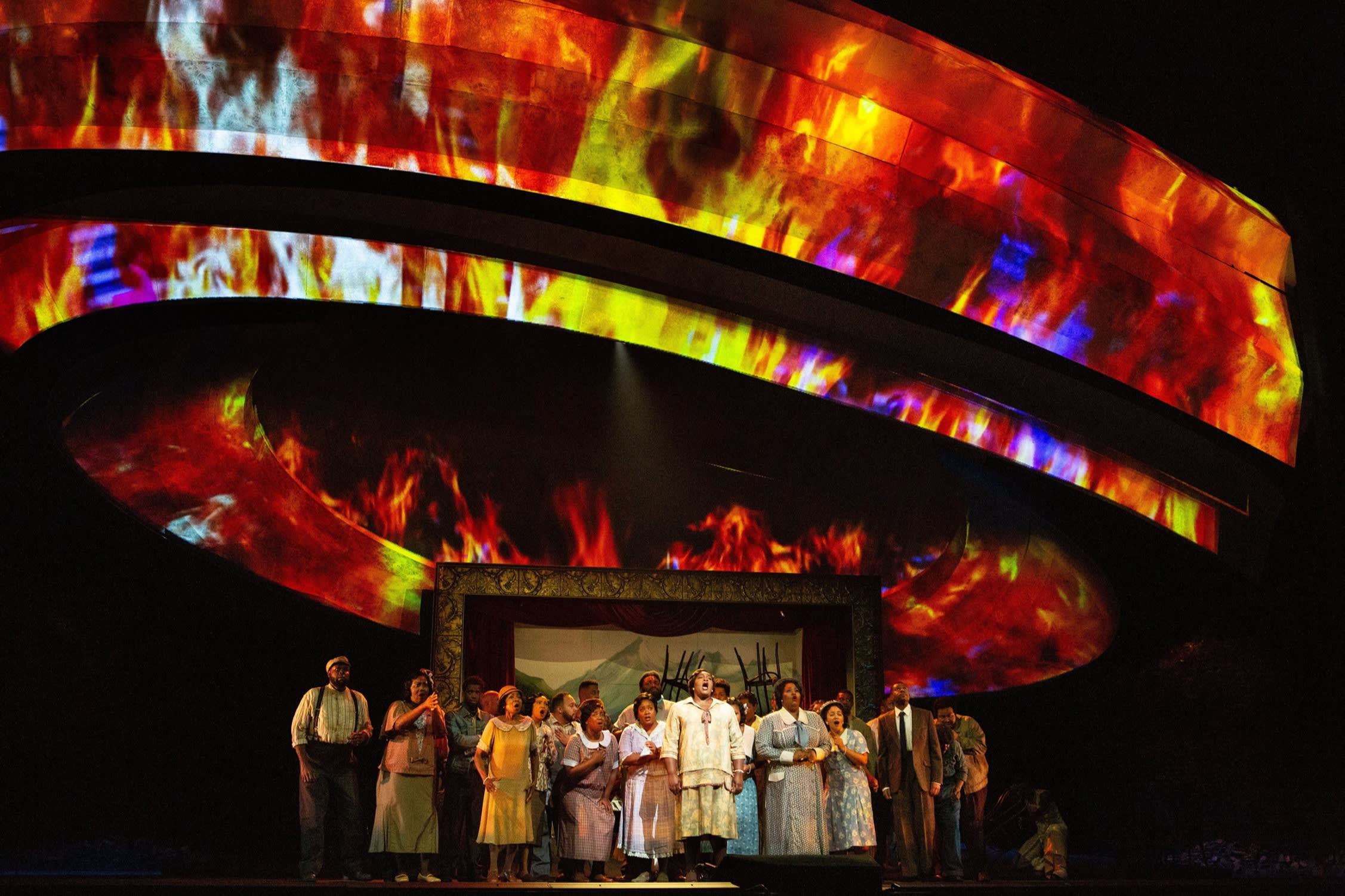Unlock the Editor’s Digest for free
Roula Khalaf, Editor of the FT, selects her favourite stories in this weekly newsletter.
The Metropolitan Opera has often been slow in staging works that address contemporary subject matter. But they have followed their recent production of Jake Heggie’s hard-hitting Dead Man Walking with another operatic take on the modern world, Anthony Davis’s X: The Life and Times of Malcolm X. Nearly 40 years after it was first performed, it has reached the Met in a new staging by Robert O’Hara.
With a libretto by the poet Thulani Davis, it traces the personal transformation of one of the most consequential American figures of the 20th century, from boyhood to his assassination in 1965.
Baritone Will Liverman sings the title role. His stage presence is notable, reflecting a subtle progression from passive young adult to figure of commanding stature. His foil is tenor Victor Ryan Robertson in the dual role of Street (a metaphorical character) and Nation of Islam leader Elijah Muhammad. Robertson is excellent, insouciant as Street and imperious as Elijah, the yin to Malcolm’s yang. The entire opera hinges on their musical relationship.
The score is a near-classic American mélange, with touches of Stravinsky and Hindemith, African music, dance music and plenty of jazz, with Davis’s ensemble Episteme incorporated within the orchestra. The Episteme players fill their brief improvised solo spaces with expressive imagination, and the whole orchestra, under conductor Kazem Abdullah, has an impressive light-footedness along with its typically beautiful sound. The chorus, surprisingly, had a couple of rough moments trying to keep the beat in quick, odd-metered music.

The costumes by Dede Ayite and wigs by Mia Neal do an excellent job of showing cultural moments and even class distinctions through their details, and Rickey Tripp’s choreography defines each historic moment in which it appears. It adds great dynamism in act one but then almost disappears, and the direction in the final two acts is inert.
The key turning point is Malcolm’s pilgrimage to Mecca. This scene is one where the stasis on stage suits the ceremony of the moment, and the music and Liverman’s singing bring out the depths of the character.
The assassination at the end is not upsetting but exalted; there’s confusion as to whether one should even feel loss. Yet, though deeply ambitious, this production doesn’t quite hit the emotional resonances it seeks.
★★★☆☆
To December 2, metopera.org








